Healthcare providers have reported “unprecedented demand” for abortion pills and hormonal drugs following Donald Trump’s election victory, it has emerged.
Women’s and transgender health care providers are being inundated with requests from patients who fear their access to certain medications will be banned under the Trump administration. the guardian reported.
One telehealth service reported a 300 percent increase in requests for emergency contraception, while another said requests for contraceptive treatments doubled.
Aid Access, the largest provider of abortion pills in the United States, reported an increase in requests that was “even greater than the day after Roe v Wade fell.”
Trump downplayed abortion as a priority for his second term while campaigning, despite taking credit for the Supreme Court ending a woman’s federal right to terminate a pregnancy and returning abortion regulation to state governments. .
The president-elect affirmed that overturning Roe v. Wade was enough at the federal level and said last month on his social media platform Truth Social that he would veto a federal abortion ban if the legislation reached his desk.
Health care providers have reported “unprecedented demand” for abortion pills and hormonal medications following Donald Trump’s election victory. Trump appears at the Palm Beach County Convention Center after his election victory was declared.
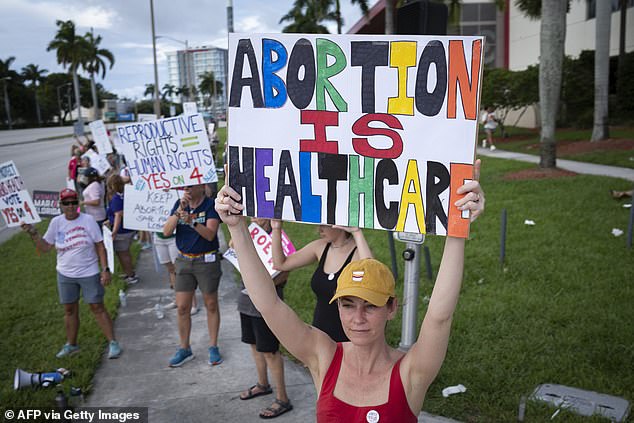
People hold signs during a rally for abortion rights on the second anniversary of the Supreme Court ruling to overturn Roe v. Wade, in West Palm Beach, Florida, on June 24, 2024.
According to the newspaper, Aid Access ships approximately 9,000 abortion pills a month, but after Trump’s election victory was announced it received more than 5,000 requests in less than 12 hours.
Abortion pill search website Plan C reported a 625 percent increase in traffic that co-founder Elisa Wells described as people “trying to plan for the reproductive apocalypse we anticipate will occur under the Trump presidency.”
But the panic was not exclusive to abortion pills. Requests for emergency contraceptive products, such as Plan B, also skyrocketed.
Telehealth provider Wisp, as of 11:30 a.m. Wednesday, had tripled its daily sales of emergency contraceptives.
The women’s health service has also increased orders for bulk Plan B packages from around 30 per cent in early November to 90 per cent on Wednesday. Wisp also claims that new patient applications for Plan B increased from 50 to 70 percent.
Winx, another women’s health site, told The Guardian that it had sold six times as many Plan B pills on Wednesday afternoon as it did in the past week combined.
Hey Jane, another telehealth service, said its contraceptive requests doubled.
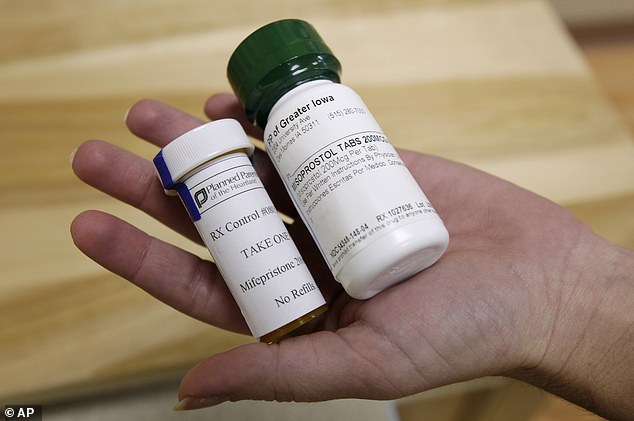
Aid Access, the largest provider of abortion pills in the United States, reported an increase in requests that was “even greater than the day after Roe v Wade was dropped” (file photo of abortion pills)
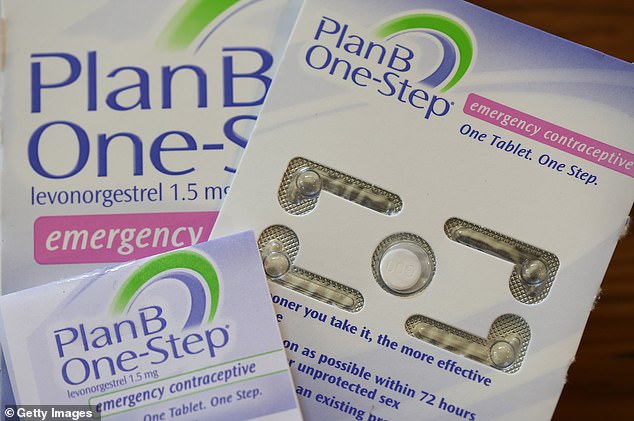
But the panic was not exclusive to abortion pills. Requests for emergency contraceptive products, such as Plan B, also skyrocketed (file photo)
Trans patients have also expressed concerns about access to health care, said Dr. Crystal Beal, who runs the QueerDoc website that provides patients with estrogen, testosterone and hormone-blocking medications.
She stated that an influx of patients have asked questions such as ‘how can I safeguard my access to medications?’, ‘Should I change (the gender on) my legal documents to be safer?’ and ‘Should I stop taking medications to be safer?’
“I have to tell people that ultimately I can’t predict the future or make that decision for them, and I certainly can’t give legal advice,” Beal told the newspaper.
‘But changing your documentation or stopping your medication does not make you less of a man or woman, nor less trans. Who we are is not determined by what our documents say or the medications we take.’
He added that QueerDoc has advised patients to accumulate as much hormone treatment as allowed by state law and their health insurance coverage.
The company has also suggested that trans men reuse single-use vials of testosterone to stretch them even further.
Abortion rights advocates fear that a Republican-controlled Congress could enact sweeping national restrictions or an outright ban on abortion.
Trump has said he would veto a national ban, despite previously refusing to answer questions about it.
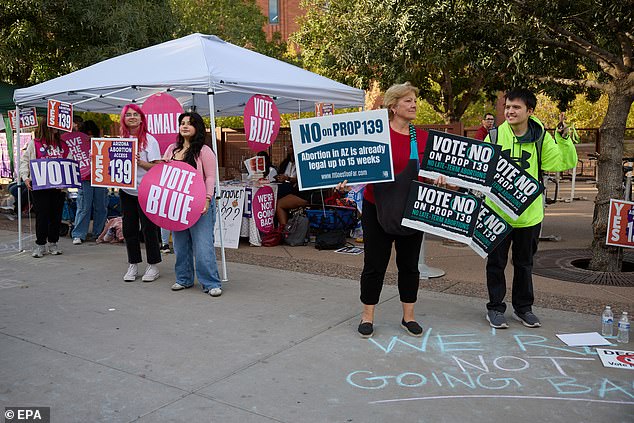
Supporters for and against Proposition 139, for abortion access, try to get students to vote on Election Day at Arizona State University in Tempe, Arizona.
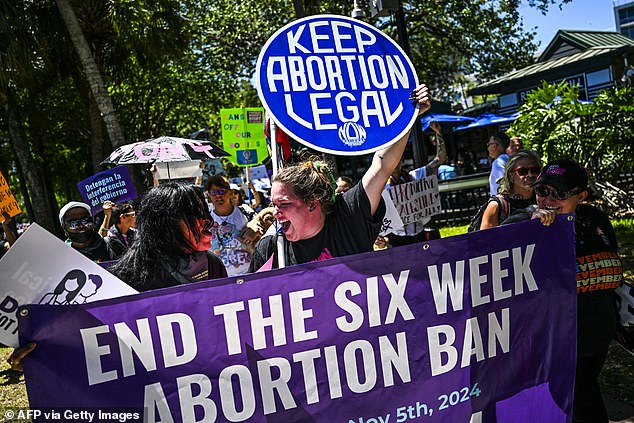
Abortion rights activists participate in the “Rally for Our Freedom” to protect Floridians’ abortion rights, in Orlando, Florida, on April 13, 2024.
But Republicans have been accused of trying to reframe federal abortion restrictions as “minimum national standards” to distort their own positions on the issue.
It is also unclear whether the Trump administration would aggressively defend against legal challenges seeking to restrict access to abortion pills, including mifepristone, as the Biden administration has done.
Abortion advocates continue to wage legal battles over the Food and Drug Administration’s approval of the drug, as well as the agency’s relaxed prescribing restrictions.
Trump is also unlikely to enforce Joe Biden’s guidance that hospitals should offer abortions to women in medical emergencies, even in states with bans.

